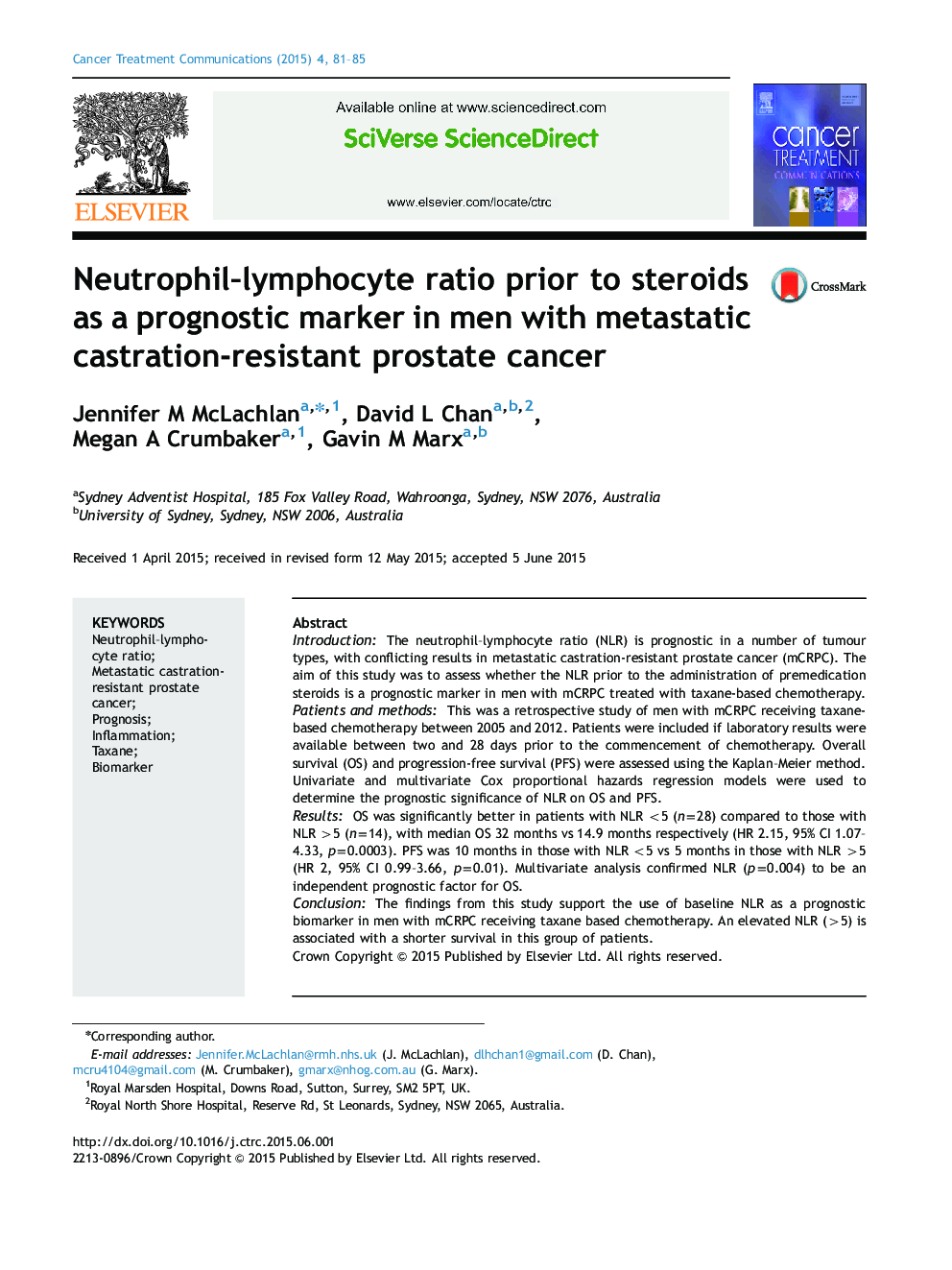| Article ID | Journal | Published Year | Pages | File Type |
|---|---|---|---|---|
| 6190248 | Cancer Treatment Communications | 2015 | 5 Pages |
IntroductionThe neutrophil-lymphocyte ratio (NLR) is prognostic in a number of tumour types, with conflicting results in metastatic castration-resistant prostate cancer (mCRPC). The aim of this study was to assess whether the NLR prior to the administration of premedication steroids is a prognostic marker in men with mCRPC treated with taxane-based chemotherapy.Patients and methodsThis was a retrospective study of men with mCRPC receiving taxane-based chemotherapy between 2005 and 2012. Patients were included if laboratory results were available between two and 28 days prior to the commencement of chemotherapy. Overall survival (OS) and progression-free survival (PFS) were assessed using the Kaplan-Meier method. Univariate and multivariate Cox proportional hazards regression models were used to determine the prognostic significance of NLR on OS and PFS.ResultsOS was significantly better in patients with NLR <5 (n=28) compared to those with NLR >5 (n=14), with median OS 32 months vs 14.9 months respectively (HR 2.15, 95% CI 1.07-4.33, p=0.0003). PFS was 10 months in those with NLR <5 vs 5 months in those with NLR >5 (HR 2, 95% CI 0.99-3.66, p=0.01). Multivariate analysis confirmed NLR (p=0.004) to be an independent prognostic factor for OS.ConclusionThe findings from this study support the use of baseline NLR as a prognostic biomarker in men with mCRPC receiving taxane based chemotherapy. An elevated NLR (>5) is associated with a shorter survival in this group of patients.
